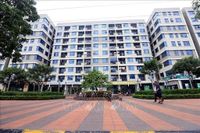In recent years, Thailand has faced significant challenges in its political and economic landscape, prompting calls for a comprehensive structural reform. Dr. Suvit Maesincee, a prominent figure in the discourse on Thailand's development, has pointed out that while countries like China, Singapore, and South Korea have successfully transformed themselves from lagging states to leading nations, Thailand remains stuck in a cycle of stagnation.
Dr. Maesincee emphasized that Thailand has been classified as a "middle-income country" for far too long, and the current trajectory suggests a troubling decline towards a failing state. He lamented the lack of substantial structural reforms since the reign of King Rama V, noting that the conditions for change today differ vastly from those of the past. The historical context of the 19th century, characterized by a desire to modernize and combat colonialism, contrasts sharply with the contemporary challenges of sustainability, social equality, and technological advancement.
According to Dr. Maesincee, Thailand is trapped in a complex cycle of failure, which he terms the "Lost Decades." This cycle is marked by a series of interrelated issues, referred to as the "three circles of economics." The first circle, which began around 1947, is characterized by "pseudo-democracy," corruption, and the abuse of power. These factors have led to public discontent and protests, ultimately resulting in military coups that perpetuate the cycle of flawed governance.
Furthermore, Dr. Maesincee pointed out that the second circle has exacerbated economic problems, as the reliance on populist policies has increased dependency on the state. This dependency has widened the gap between the rich and the poor, leaving many citizens without access to essential resources, thus entrenching poverty.
As Thailand grapples with these issues, the need for a shift to "inclusive politics and economy" has become increasingly urgent. Dr. Maesincee argues that the current political landscape is dominated by extractive politics, where a small elite controls resources and opportunities, leaving the majority disenfranchised.
He proposed a framework for change, which he calls the "Thailand Driving Loop," consisting of four key components: empowering the people, transitioning from extractive to inclusive politics, moving from an extractive to an inclusive economy, and establishing a responsible government. Each of these loops is essential for breaking the cycle of stagnation and fostering sustainable prosperity.
The first loop, People Empowerment, aims to shift the focus from disempowerment to empowerment, encouraging citizens to take an active role in governance and societal development. This requires a cultural shift away from patronage and elitism towards a system that values participation and accountability.
The second loop, Inclusive Politics, seeks to create a political environment where all citizens have a voice and can influence decision-making. This is crucial for building trust in government institutions and ensuring that policies reflect the needs of the populace.
The third loop focuses on transitioning to an Inclusive Economy, where economic opportunities are accessible to all, rather than concentrated in the hands of a few. This involves implementing fair economic policies that promote competition and protect workers' rights.
Finally, the Responsible Government loop emphasizes the importance of ethical leadership and effective governance. Dr. Maesincee stressed that a credible government is one that prioritizes the welfare of its citizens and operates transparently and accountably.
Dr. Maesincee's vision for Thailand's future is not without its challenges. He acknowledges that breaking free from the cycles of failure will require significant effort and commitment from all sectors of society. However, he remains hopeful that with strategic pragmatism, Thailand can transform its political and economic landscape to achieve sustainable prosperity.
As Thailand looks forward, the path to becoming a developed nation hinges on the ability to adapt and respond to changing global dynamics. Dr. Maesincee's insights serve as a call to action for policymakers, citizens, and stakeholders alike to engage in meaningful reform and work towards a brighter future.






